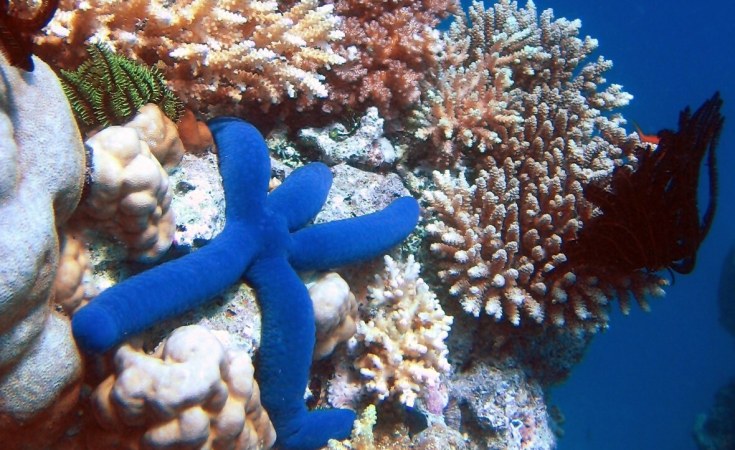In 2022, Nature Seychelles outplanted 4,000 coral fragments, grown in 4 underwater nurseries in the Cousin Island Special Reserve Marine Protected Area (MPA), according to the environmental NGO.
To get to this stage, the team at Nature Seychelles concentrated on building mid-water floating nurseries in 2021, collecting coral fragments, and stocking these in the nurseries. During that year, nearly 10,000 corals were stocked in the nurseries and the Nature Seychelles team only started out-planting coral in 2022.
A science and technical field officer of the Reef Rescuers project, Roshni Yathiraj, told SNA that this is an amazing achievement, taking into account that coral reef restoration is a time-consuming and challenging activity.
"It takes our team countless hours of physical and mental effort to collect coral fragments from donor sites, build nurseries on which these fragments are grown, maintain and ensure these fragments get the best conditions to grow," said Yathiraj.
She added that the ocean conditions are not always ideal with strong currents, low visibility, high waves, surge, and an increasing frequency and intensity of storms adding more challenge to the work.
"Collecting, stocking, and transplanting activities take place on a continuous cycle throughout the year. As long as the weather and ocean conditions permit it, the team is in the water working. Currently, the Reef Rescuers team is made up of 4 people being assisted by volunteer scientific divers," said Yathiraj.
The team is focusing on rearing fast-growing branching coral of three genera and started to stock coral in April 2021. To ensure healthy growth, corals had to be kept clean of algae and parasites and watched for disease. The team also had to ensure that structural failures in the nursery did not happen. Once grown to an optimal size, the corals are outplanted in degraded areas within the MPA of Cousin Island Special Reserve.
The work is part of the Reef Rescuers project that the conservation, not-for-profit organisation has been restoring the degraded reef of Cousin Island for over a decade. To date, more than 30,000 corals have been outplanted.
Funded by the Adaptation Fund through UNDP and the government of Seychelles, the third phase of the project includes the establishment of a land-based nursery expected to materialise this year. The land-based nursery is expected to generate more coral fragments at a faster rate than underwater nurseries.
Talking about the resilience of restoring coral reefs in the face of climate change, Yathiraj shared that restoration is a constantly evolving science and that new innovations and discoveries are being made the world over to help improve the survival rates of coral, and coral that has naturally evolved to be stress resistant is one way that is being used.
"The other way is to use genetically enhanced coral colonies that are bred to be more resilient to changing climate conditions. However, all of this is just a band-aid solution in the long run as long as global warming and climate change continue at this current rate. Rising temperatures and ocean warming events will continue to impact our restored reefs the same way it affects our natural reefs," said Yathiraj.
"The solution is to do everything we can as a collective global community to change our ways to stop such a rapid change in the climate. Everyone has the power to contribute to this solution. Simple things like choosing a more sustainable lifestyle, like not using single-use plastic, choosing eco-friendly modes of transport, reducing pollution and effluent discharge," she said.


